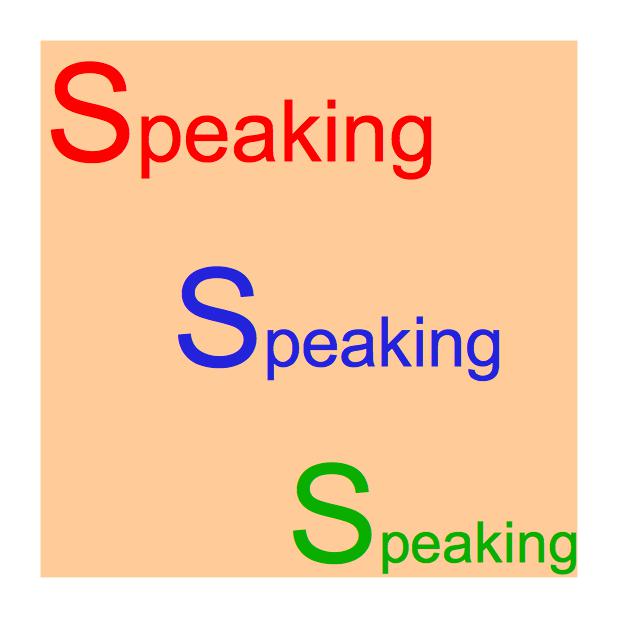The Three S's of Language Fluency
 You can't become fluent in a foreign language without practicing to speak. This appears to be self-evident.
You can't become fluent in a foreign language without practicing to speak. This appears to be self-evident.
But learners often seem to forget it, when they practice flashcard apps on their phone or on mobile devices, and do so without repeating and pronouncing the foreign words and phrases.
Yes, learning vocabulary is important and yes, it's difficult to practice aloud in public, at work, or even at home while others are listening. However, there are no shortcuts: You have to practice your pronunciation and learn to speak.
The opportunities to speak are obviously greatest with week- or month-long language immersion programs, and also exist with private tutors or even in classroom settings. Learners are constantly encouraged and challenged to speak. With textbook- and CD/DVD-based, or online language programs speaking can become an option.
Even with popular programs, such as Duolingo, speaking is only required in, maybe, 30% of the exercises. However, in most online programs, including Duolingo and our GamesforLanguage, learners obviously have the option to repeat the foreign words and sentences they hear and read.
“Say It”
All our GamesforLanguage courses have a “Say It” sequence, which is especially popular with many beginners. In “Say It,” the learner hears a word or phrase spoken by a native speaker, which then is followed by a “Say It” command.
With time to repeat the word or phrase several times before it appears on the screen, the learner can then correlate the audio, i.e. what s/he heard with the spelling of the word/phrase. In these examples for German and French, you can see how it works. Repeat each “game” a couple of times and you'll be surprised how much you'll learn and remember.
Read Aloud
As your language skills start to improve and you begin to read paragraphs, articles, and maybe soon books, read aloud whenever you can. Don't worry, if you can't yet pronounce each word correctly.
At the start, it's more important that you keep trying to convert the written words into spoken language than trying to sound like a native. Think about how long it takes children to pronounce each word of their own native language correctly and give yourself time to improve.
Communicating
The earlier you start using your speaking skills in real life situations, the better. But unless you are living in a foreign country or a neighborhood were the language is spoken, have a foreign-language friend or partner, or are traveling, your options will be limited.
Online communities, using Skype, Facetime and similar networks can open the doors to speaking and communicating, but such arrangements have to be planned and scheduled.
Maybe not everybody can muster the time or commitment that Benny Lewis promotes with Fluent in 3 Months. But if you watch his clip and consider the points above, you will conclude as well:
To become fluent in your target language, start SPEAKING it whenever you can - right from the start! Creating a habit is not easy – but the start of a new year is a great opportunity to set some goals. Make this YOUR year to become fluent in your target language!
The truism proposed at the beginning: “You can't become fluent in a foreign language without practicing to speak it,” also means that any adult serious about language fluency has to plan where and how to practice speaking. In addition to the suggestions above, you'll also want to include speaking opportunities into your language practice plan.
Disclosure: The above Link to Fluent in 3 Months is to a site with revenue-sharing, should you decide to buy or subscribe.
